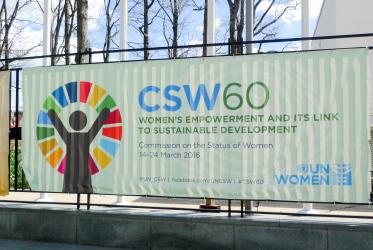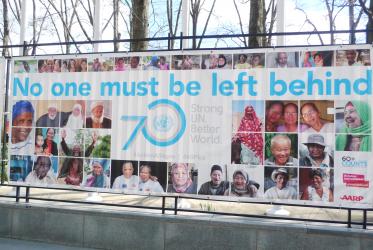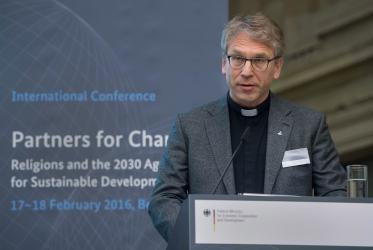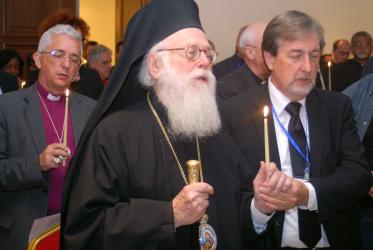Displaying 141 - 160 of 315
26 April 2016
WCC conference explores ecological injustice in Uganda
21 April 2016
Lahore bombing shows vulnerability of Pakistanis
31 March 2016
Religious leaders as agents of peace in the Americas
02 March 2016
Religion and Violence Prevention in the Americas
28 February - 01 March 2016
Washington D.C., United States - Attendance by invitation only.
Symposium focuses on religion, violence, extremism
04 February 2016
WCC/UN conference calls for coordinated action on refugee crisis
20 January 2016
At Nordic conference, Tveit reflects on role of hope in advocacy
12 January 2016
Rebuilding a smashed church in Albania
23 December 2015
Basel University honors Ghanian Methodist theologian
09 December 2015












